We currently live in a globalized, interconnected, multicultural world. Societies are shifting towards environments where people from different cultures, nationalities, languages, beliefs, and customs live together in one community. Increased intercultural contact is more likely, and therefore new social interactions are constantly settled.
Intercultural friendships represent a complex intimate intersection of different variables, aspects, and processes. They are unique in a way that individuals most surmount challenges such as overcoming stereotypes and negotiate cultural differences. On the other hand, intercultural friends can benefit from expanding cultural knowledge and broaden their perspectives.
0 Comments
Building intercultural Christmas traditions: our personalized blended Finnish-Nicaraguan Christmas22/12/2022 It is holiday season, and this time of the year is a perfect occasion to put into practice the intercultural richness of our family. My husband is from Finland, and I am from Nicaragua. Together we are raising a trilingual 4-year-old girl who has big expectations for Christmas. But how do we reconcile two cultures in a festive tone? Christmas is not always nice and fun, but this blog is a photography of our life situation in December 2022, and if you relate to it, you might also be in an intercultural family.
Christmas started early with a generous amount of snow that fell and never went away. Back home there is no snow ever, so I find amusing to see my daughter play and eat the snow that announces that Christmas is near. A Christmas calendar with little chocolates to open day by day is a new experience for me: this time my daughter chose herself the type of calendar she wanted to have. Our family playlist includes songs such as “El burrito Sabanero”, “Last Christmas” and “Tonttujen jouluyö Tip Tap (Soihdut sammuu)”. My daughter makes her own version of the lyrics in Spanish, Finnish and English, mixing all the songs. Yes, Christmas carols are part of our repertoire and that is where things get a bit intercultural. Picture: Our empty room when we arrived in Helsinki This year the world mental health day falls on the 10.10.22 and the theme is “Make mental health and well-being a priority for all”. What does it mean to all of us, especially intercultural families who have challenges integrating to a new society? Mental health issues are on the rise especially during and after the Covid-19 pandemic crisis which affected many people globally where they had to be confined to homes, lost their main source of incomes, lost their loved ones and a complete shutdown in their everyday lives. When Covid-19 struck, we had to learn to fast track to deal with mental health and wellbeing issues all of a sudden , unprepared like a bunch of kindergarten children on the first day of school. I am no exception to them. Here is my transition story moving from a big city, Kuala Lumpur to a quiet town of Sipoo, 30 km east of Helsinki a year ago. I come from an intercultural family where my Finnish husband speaks Swedish and Finnish; and on my side, my mother tongue is Cantonese and I learned Bahasa Malay, English and Mandarin in my formative school years. Our common household language is English with our children. I am lucky to be able to access to support groups and intercultural family groups here like Familia or Spouse Program to share my woes and lament unlike back home in Malaysia. For example, Familia has given me a place or platform to share my thoughts and mix with other intercultural families who may be going through what I went through in life situations such as the severeness of digital exclusion, seeking employments, choice of children’s education development or discriminatory actions of certain groups of minority. Finland is becoming a popular immigrant-moving country. It has been declared as the happiest country in the world for the last 5 years, and without a shadow doubt with the quality of life and facilities. Many foreigners moved here from their countries, some are looking for improvement of life, finding a job or to live with their spouse. I came to Finland in 2019 from Pakistan because my husband is a Finnish citizen, so I had to move here. In the first look I liked this country, its beautiful scenery was fascinating. My goal was to find a suitable job for me in this competitive market. I had my master’s degree in social work, and I was expecting that I could find the job easily. However, I was wrong when I tried to find a job, because I found that the main obstacle and problem is language. In other words, I cannot perform a job without learning the Finnish language. I speak only Urdu and English. But how to get into a workplace to practice Finnish language in first place, if Finnish work culture finds resistance to trust immigrants and their lack of fluency when it is not native level? Finland holds a special place in my and my family’s hearts, probably more so in the past 10 years since my partner started to travel more frequently here for his work. Over this time, we have spent a few short summer breaks in Finland and all three of our son’s when younger have experienced international summer camps here through my partners' employer. We love the outdoor life that Finland has to offer, its people, the quality of life, the wonderful surroundings of its nature and of course being so close to the ocean it’s our heaven! My partner has worked for the same Finnish employer for the past 24 years now, (22 of those spent in the UK). So when at the end of 2019 the opportunity through his new role came to relocate to Finland we knew this was one we could not turn down. Fast-forward to 5th September 2020 and where our rescheduled July flights were suddenly now allowed to go ahead, we finally made it to our new home here in Finland just before the borders closed again a few days later. My partner and I are British, we are classed as immigrants or as an intercultural couple here in Finland. After completing all the required administration for our right of residency permit and myself applying day after day for numerous jobs, I was finally offered a fixed term contract starting January 2021. I was super happy, and suddenly I felt sense of acceptance at least at the time. Now I don’t speak fluent Finnish, have a Finnish name nor do I have a Finnish qualification, but I do know my own worth. I have many transferable skills, valuable experience, and other vocational qualifications to offer. I am honest, loyal, and hardworking, and I was going to make sure that the life I led before entering Finland counted for something. Moi Kaikille! I am Azra from Malaysia, and this is my story. I was born in Malaysia in an intercultural family. My father was born in Malaysia to a family originating from India and my mother was a Malay with mixed parentage of Indian and Indonesian. I grew up with intercultural dynamics within my family among the three major race groups in Malaysia (Malay, Chinese and Indian). I was well aware of the mixed culture we adopted as part of our family lifestyle. We would dress in Malay traditional clothes and watch and listen to Indian movies and songs, while enjoying sumptuous Chinese food for dinner. My understanding and realization of culture, identity and relationships were enhanced further in my adulthood. Prior to Finland, I had lived in Australia, Vietnam and Ukraine for work reasons and have met many intercultural families among friends and colleagues. I loved making friends with people from all over the world within my work circle, learning usually something new about their culture, heritage and traditions. I visited Finland for the first time in 2014 during the summer and then again in 2018. I was captivated by the beautiful nature and the flexibility of the lifestyle in Finland. I travelled to Rovaniemi and even met with Joulupukki in his hometown. I remember I told Joulupukki what I wished for Christmas, “something special from Finland”. Little did I know, I would meet a really special man from Finland after that. Moving to a new country brings about a multitude of issues, often centred on navigating basic everyday life and integrating into a new environment. Off the top of my head – upon moving to Finland – I had to jump new and confusing bureaucratic hurdles; learn a new language (still in progress!); seek to understand Finnish society and social norms; and, to develop social and work-related networks from the ground-up, to name but a few challenges.
From personal experience and through discussions with other international migrants, there is one thing that benefits the above more than anything else – employment. Though it is not a silver bullet, employment contributes significantly to addressing issues concerning integration. Since swapping my remote working role for regular employment at a Finnish organisation, I have felt more integrated and independent in Finland than ever before. We immigrants want to work. The Finnish government wants us to work. Yet over 25 % of immigrants in Finland are unemployed. Meanwhile, of those that are employed, many are in roles that are not in line with their qualifications or experience. There appears to be a fundamental belief that immigrants are unskilled or that their qualifications or experiences do not translate, or worse, are simply not accepted in the Finnish market. Hello, I’m French, with physical disability since 2009. My French partner and I decided to leave France and come to Finland in March 2019. As we’re both French, living abroad, we’re considered as an intercultural couple. I’d like to share with you my experience as a disabled newcomer to Finland, without speaking Finnish. To begin with, I’m going to talk a bit about the situation before leaving. I was anxious about leaving the country without having information on disability, because I knew how difficult the French procedures related to this subject were. Indeed, in France, it was complicated to be recognized, receive an allowance, and make my right as a disabled person respected. So, what will it be in Finland? Before leaving, we started my information quest. We tried to find information by myself, and one useful website was InfoFinland. We also contacted the French consulate in Finland and the Finnish consulate in France. We didn’t receive a lot of information from both places, but at the Finnish consulate, the person we met really tried to help. She recommended us to go on Invalidiliito website. We didn’t contact them at first, because they were not really answering my questions. As France and Finland belong to E.U., we wanted to know if the documents stating my disability were valid in Finland, because they’re done in respect of European rules. Unfortunately, we didn’t find any information on that before leaving. Of course, doctors and administrations are not the whole life of a disabled person. From a personal perspective, my partner is my main moral support. He helps me with everyday tasks, and I thank him a lot for all he does. He’s not a Finn and doesn’t speak Finnish, so he feels powerless regarding my struggles with administrations, doctors, etc. When I first moved here, I found some similarities between Finland and my home country of Canada. I felt some sense of familiarity with nature, which makes me feel like I could be in Canada, and the attitude of surviving winter - that all one needs is the proper clothing to get outside. In the summers, people in both Canada and Finland flock to a cabin near a lake, and in winter many people do winter activities like skiing or playing ice hockey. Canadians are stereotypically very polite, and Finns are stereotypically very reserved, but for some reason, the aggressive and physical game of ice hockey attracts players from both countries. Usually, when I travel internationally, people have not heard of my hometown, it’s not a big city and not a tourist destination. However, when I moved to Finland, I realized that people had actually heard of my hometown of Winnipeg! One of Finland’s most famous hockey players, Teemu Selänne made his start in Winnipeg, and more recently, Patrik Laine was drafted to Winnipeg and played there for a few years. There are many things about our personalities that are similar, but we have also discovered many differences as we have gotten to know each other better. So, while we appreciate and enjoy the same things, like watching ice hockey, there are still differences, such as cheering for different teams or our opinion of salmiakki. My Finnish language learning journey started when I decided to move to Finland some years ago...27/2/2022 I would say that it was quite a complicated path since I was quite on a rolling coaster on-and-off studying Finnish. I was quite passionate about this language at first, then I was occupied with other activities in my life and Finnish language was no longer a priority. Long story short, I started learning Finnish again in the summer of 2021. It was the first summer in Finland that I did not go to work and stayed at home all day cramming Finnish instead.
My 10-hour daily routine for learning Finnish include 2 hours of speaking only in Finnish preparing for YKI test, 4 hours of reading one selkokirja, 2 hours of watching series and films in Finnish and the rest is for doing grammar exercises in various kinds of grammar book. I do believe I completed learning Suomen mestari 1-2-3-4, Samalla kartalla 1-2, Harjoitus tekee mestari 1-2-3-4, Hyvin menee 1-2, Ykinköö ja Ykäänkö and several language books available in the library. I did enjoy and sometimes hate the process, and, occasionally, I simply wanted to give up. However, I believe that the crucial element to my success passing YKI 4 level is not the learning process but hope that drags me all the way. |
blogi - blogAjatuksia ja kokemuksia elämästä kahden kulttuurin keskellä.
Reflections and experiences from the life of intercultural families. kategoriat
All
osallistuToivotamme sinut lämpimästi tervetulleeksi osallistumaan blogiyhteisöömme: lue, kommentoi ja kirjoita!
Kirjoittajina voivat toimia kaikki kahden kulttuurin arkea elävät ja aiheesta kiinnostuneet. Kynnystä kirjoittamiselle ei tule nostaa liian korkealle ja kirjoittaa voi joko omalla nimellä tai nimimerkillä. Blogissa esitetyt näkökannat ja mielipiteet ovat kirjoittajien omia, eivätkä edusta Familian kantaa. Kahden kulttuurin arki on itsessään kiinnostavaa ja siitä kirjoittaminen voi avata myös itselle uusia näkökulmia! Blogikirjoituksia voi tarjota sähköpostitse (info@ familiary.fi) tai yhteydenottolomakkeen kautta. Lopullisen valinnan julkaistavista jutuista tekee Familian henkilökunta. Tervetuloa mukaan! participate!We warmly welcome you to participate in our blog community: read, comment, and write!
Anyone who lives and works in the world of intercultural families and is interested in the topic is welcome to contribute. The threshold for writing should not be too high, and you can write either under your own name or under a pseudonym. Keep in mind that the views and opinions expressed in the blog are those of the authors and do not represent the position of Familia. The everyday life of intercultural families is interesting and writing about it can also open new perspectives for you! Your story matters and helps to raise awareness about the opportunities and challenges within intercultural families. Blog contributions can be submitted by e-mail (info@ familiary.fi) or via our contact form. Final selection and edition of the stories to be published will be conducted by our staff. Welcome to join us! |
|
|
© Familia 2024

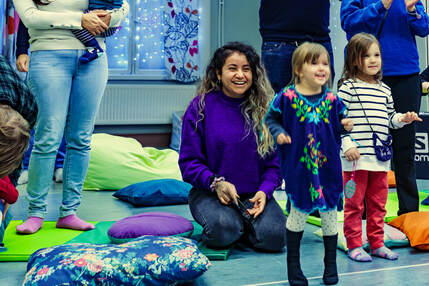
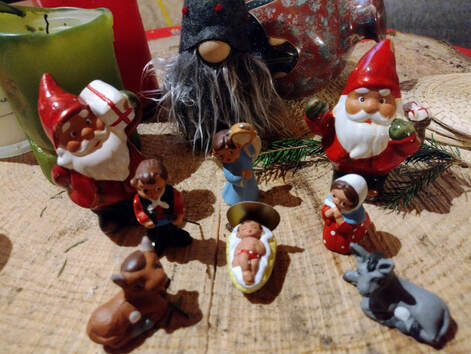
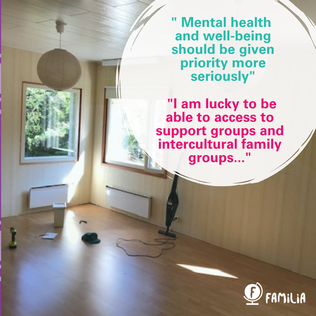
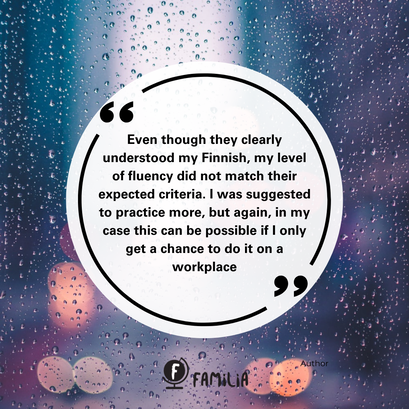

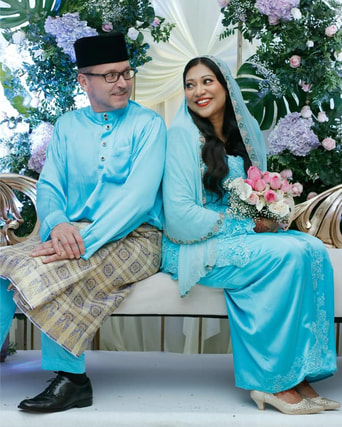
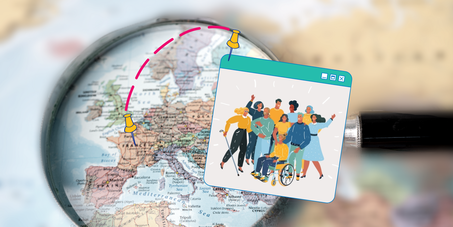

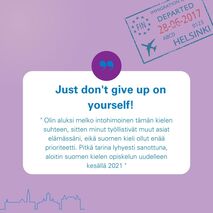
 RSS Feed
RSS Feed

